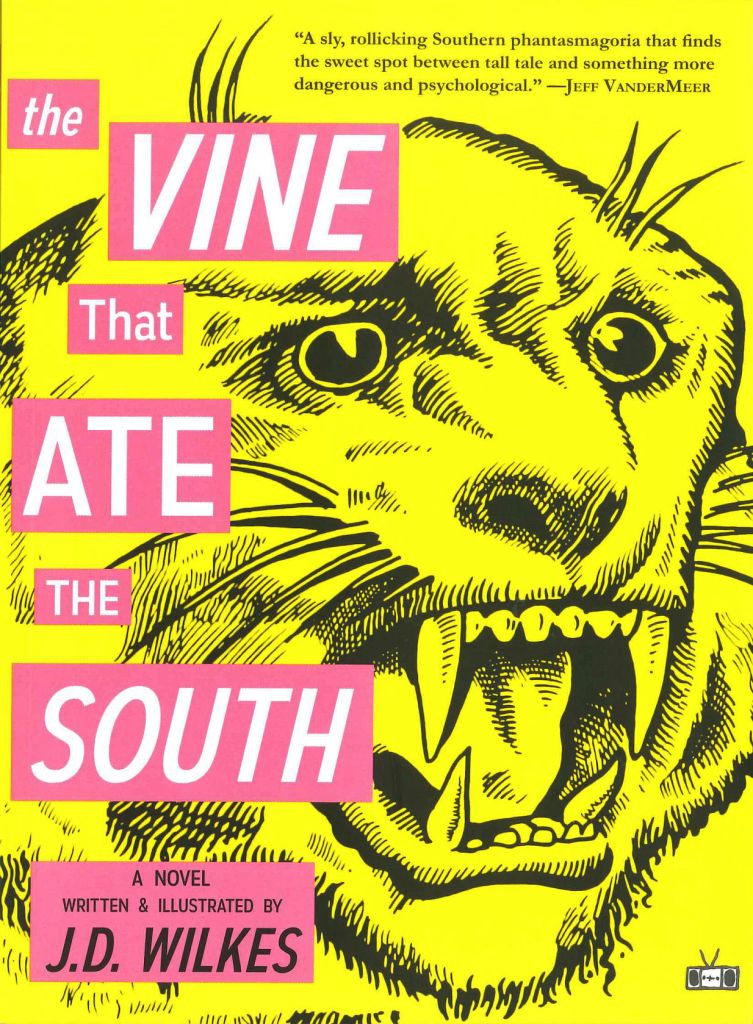Book review: ‘The Vine That Ate the South’
Published 12:00 am Sunday, April 15, 2018

- Book review: 'The Vine That Ate the South'
“The Vine That Ate the South: A Novel” written and illustrated by J.D. Wilkes. Columbus, Ohio: Two Dollar Radio, 2017. 212 pages, $15.99 (paperback).
When I was first approached about reviewing this title, I must admit I cringed at the thought of reading yet one more “tobacco road” novel set amongst a background of colorful, yet hackneyed descriptions of Southern people in their quaint settings of the impoverished rural South. Such novels are unfailingly written by excessively literate, culturally estranged expats who are at once embracing their heritage while, at the same time, remaining emotionally at war with a culture into which they were born and yet to which they never really felt as if they belonged. As a result of this psychic isolation, they have become acute observers of that culture from which their analysis and intellect isolates them. Their stories, at one level exploitive and often shallow, offer mere caricatures of Southern people for urban, literary elites to enjoy feeling superior and to titter about during their Sunday morning lattes.
The great American folklorist Alan Lomax once called American folk music a “patchwork quilt … made of the dreams and songs of all its people.” American literature follows this same quilt pattern. Many Southern authors have and will continue to write saccharine, sentimental memoirs of their childhoods and heritage while others have taken an aggressive and condemnatory approach that viciously lampoons and assaults the subject. Neither of these approaches presents an accurate picture of the American South.
Writing about one’s culture takes great sensitivity and keen insight combined with a certain empathetic compassion. It also takes a willingness to look through the cultural window with unflinching eyes to the darker, less attractive side of one’s ethnic and cultural background. Kentucky-born musician and artist J.D. Wilkes has attempted to tell this tale of his western Kentucky rural culture while embracing both of these approaches to Southern culture. Wilkes is not a sentimentalist and yet treats his characters with a certain compassion that betrays his respect and admiration for them, warts and all. His approach is to examine this cultural tale with candor and a cynical sense of humor. This humor allows the reader to survive vicariously peering into the cultural lives of others while hopefully recognizing a bit of their own reflections within those same windows.
Wilkes presents his story in the time-tested format of a boy’s adventure, of going through the woods to find an abandoned and possibly haunted residence that has been consumed, along with its former owners, by that relentlessly intrusive botanical scourge of the South: kudzu. It’s a plant that was brought to the South in error, and Wilkes says, “although deaf and blind, it maneuvers around the urns of sleeping saints, through the soil of the Biblical Sheol.” (p.55). The geographical setting of the book is an all-but-abandoned region called The Deadening, which reminds this reviewer of many such areas that children sneak away from the safety of their homes and communities to explore. Such places are at once surreal, supernatural and fascinating. The Deadening is a dark, forgotten, forbidden place where only outcasts and wild ones would normally dare to tread, filled with madness, danger and decay.
Early in the narrative, Wilkes introduces us to Carver Canute, his rustic companion who regales the narrator with a wealth of bizarre information about the area and its sordid history. Wilkes’ descriptions are a bit overdone at times, but he does manage to convey the oppressive, gothic ambience of the story. Many of the descriptions, such as the one about the vampire cult, harken back to actual headiness from western Kentucky that many residents will immediately recognize and remember. Throughout the text one encounters quotes from local newspapers, Bible verses, hand-drawings and epitaphs that serve as illustrations.
The narrative of Wilkes’ “Vine that Ate the South” mentions and introduces a host of regional people including Edgar Cayce and ghostly entities like The Bell Witch and the “Bae-Bae.” The journey format of “The Vine” reminds this reviewer of Homer’s Odyssey or of a surreal Mark Twain’s Huckleberry Finn. During this epic journey, Wilkes’ narrator encounters different people and events that cause him to reflect upon his personal issues, including his “fatherless home” and the inherent contradictions associated with living in and originating from the rural South. Wilkes employs his sardonic, humor-based style of examining current topics like modern evangelical religion, the role of technology and cultural politics that allows the reader to look beyond the shallowness of their usual treatment in our modern sound-bite media. He has a real gift as a storyteller and the potential to become one of America’s great authors. It will be interesting to see what topic he tackles next.
Give yourself some time to read “The Vine that ate the South,” carefully sample its many parts and let this fanciful tale grow within you like kudzu. Let it also provide you the opportunity for deep personal refection and insight into your own personal forest, your mythological underpinnings and your own often tangled experience of life.
– Reviewed by Jack G. Montgomery, professor and coordinator of acquisitions and collection services, WKU Libraries.
– Editor’s note: J.D. Wilkes will speak at WKU Libraries Kentucky Live! Series at 7 p.m. Thursday, April 19 at Barnes & Noble Booksellers on Campbell Lane. A book signing will follow. He will be at the Southern Kentucky Bookfest from 9 a.m. to 3 p.m. Saturday, April 21 at Knicely Conference Center on Nashville Road.






